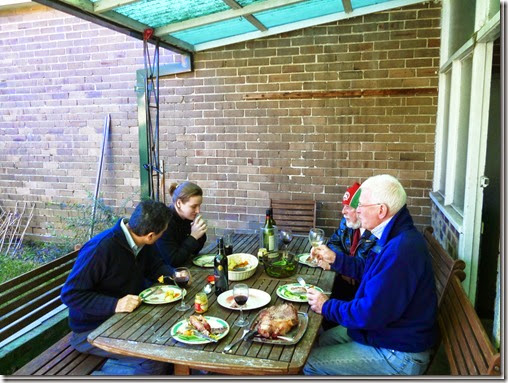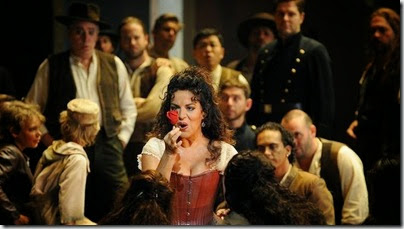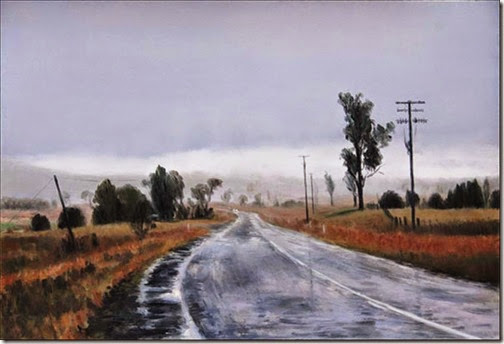We all see people in different ways shaped by our experiences, views and indeed deep reactions to personality and indeed appearance. I was twenty when I met Gough Whitlam for the first time. He had come to Armidale for my grandfather’s funeral. Later I was a junior Treasury official during the days of the Whitlam Government. During that time I was also active in the Country Party as a policy person as well as machine official.
Speaking in 1975, Margaret Whitlam is reported to have said: "Bugger the Whitlams... I'm a bit tired of all the adulation. He's almost reached the beatification stage. I suppose canonisation will come, with the obituaries." Perhaps it has, reading some of the responses to his death. My views are a little different. This brief memoir provides a simple personal perspective, recognising Mr Whitlam’s strengths and weaknesses as I saw them, placing them in the context within which I moved. I will leave it to others to do the detailed evaluations. I think that only with time will an objective assessment become truly possible.
In 1955, the Menzies’ Government announced the planned formation of a joint parliamentary committee to inquire into the Australian constitution. It was a high powered affair with a wide ambit. Gough Whitlam was the most junior member of the committee. In her biography of Mr Whitlam, Jenny Hocking talks about the influence the committee had on Mr Whitlam’s constitutional views, as well as giving him exposure to the workings of the Parliament. She quotes John Menadue who became Mr Whitlam’s private secretary in 1960: the Constitutional Review Committee was, Mr Menadue suggested, ‘the central breakthrough intellectually’ in Whitam’s intellectual evolution and consequently in the Labor Party’s policy evolution, over this time.
The Country Party’s David Drummond was one of the other members of the Committee. Drummond had been pushing for action on the constitution for some time, partly driven by his desire to see New England gain self-government. This was not his only issue, but it was a a key one.
On the surface, the two men would seem to have little in common. Drummond was Country Party, Whitlam Labor. Drummond was 65, Whitlam 38. Drummond had been a member of the NSW Parliament from 1920, the Federal since 1949, Whitlam a member of the Federal Parliament for three years. Whitlam was well educated, Drummond an autodidact who had left school at twelve. Despite these differences, the two men established a friendship and working relationship that was due in part to personality, in part to Drummond’s now deep understanding of constitutional issues and willingness to focus on principles. He and Mr Whitlam might not agree, but they understood differences and the reasons for them.
I knew about the friendship and respect because my grandfather told me, as he did with other Labor figures whom he liked and respected such as Kim Beazley Snr. Towards the end of his life, I would sit there playing with the dog and drinking dry ginger while he talked. After his death, Mr Whitlam came to the funeral. Later on his irregular trips to Armidale, he would always ring my parents to find out how they were. It’s not hard to like a man who does that.
In 1972 down in Canberra and with pre-selection in mind, I again became actively involved in the Country Party. recreating the organisation in the ACT and Eden-Monaro. I lost pre-selection, but our candidate (Bega mayor Roy Howard) achieved a swing against Labor of 2.7% and was a bit over 500 votes short of actually winning at a time when the national trend was running (if narrowly) to “it’s time.” I knew Bob Whan, the new Labor member, quite well; we had worked closely together if with different hats on wool marketing proposals. I had a high personal opinion of him, but thought he was beatable.
Mr Whitlam’s “It’s time” campaign did present a new view, one that had appeal even to many died in the wool Liberal or Country Party supporters. That was still there when Mr Whitlam went back to the electorate in the double dissolution election of May 1974. Again I was involved in campaigning. Our candidate was Ron Brewer, the popular state member for Goulburn. This time we came 146 votes short. Labor retained its majority in the House of Representatives with the loss of one seat.
The dismissal election held on 13 December 1975 was very different. The National Country Party candidate was the well known Canberra TV newsreader John Moore. The mood in the electorate was clearly such that Bob Whan was beatable, but there was a problem, for the electorate had polarised. The sharpest indication of the depth of feeling was at a Bega Branch meeting where Peter Nixon spoke. In talking about Canberra, Peter mentioned in passing the friendships formed across parties. The room exploded.
The difficulty with polarised elections is that the stark black and white drives people back to traditional allegiances. The National Country Party had clearly beaten the Liberals at the last two elections. Further, if Labor lost there would be a coalition. The electorate was having none of this. I was scrutineering at one of the Queanbeyan booths. There our vote halved. Walking back to the previously expected victory party, I found an air of gloom. In the end, our vote dropped from 30.1% to 19.6%. Murray Sainsbury won the seat for the Liberals.
I have told this story to set a context.
The first Whitlam Government was a little frenetic and confused. It was a very new Government in the sense that Labor had had not been in office since 1949. There was no experience to draw from. The Government also had many older-style Labor members who had strong views and entrenched plans. The initial short Whitlam-Barnard ministry while caucus selected the members of the ministry may have been good theatre, it was certainly very active, but it was also a sign of things to come. Mr Whitlam was not especially attuned to the grind of Government, to the need to provide a measure of control, to manage egos.
I was working in the newly created Foreign Investment Division of Treasury at the time. There everything was chaos. Controls had been introduced. However, it is remarkably difficult to write advice when you don’t know what to say and are trying to articulate principles on the spot that, at best, represent guesses as to ministerial wishes.
Despite this type of difficulty, things settled down. Now here I want to mention two things that would become important,
The first was the nature of the attacks on the Government’s economic policies. I am not talking about macro economic policy, but the allegation that the Government was in some way socialist because it wished to do things like create the National Pipeline Authority. At the time, I didn’t quite understand the arguments used against the Government. I could understand the arguments against Government intervention, but I couldn’t understand the theoretical constructs being used because I hadn’t been exposed to them. It seemed to me to be a strange melange of issues.
Later, I would come to see that this was the Australian start of a mind set that today is very familiar. It was also the start of of a political obstructionalism in opposition that has, again, become very familiar. All this was still relatively ineffective by the time of the double dissolution election. However, as economic conditions deteriorated, as the budget blew out, it would become important. More, it was at this time that the Australian obsession with the Government budget emerged, creating a meme that would later come to occupy central stage.
The second important issue was Mr Whitlam’s sometimes strident Australianism. It is clear from some of the commentary on Mr Whitlam’s death that many welcomed this. They saw it as a release, even a liberation, from their perceptions of the limitations of the past. I did not share that view. I saw it as old-fashioned, harking back to previous long-running threads in Labor thought. Worse, I saw it as little Australia, a narrowing of the breadth of Australian thought.
I recognise that many will disagree. I am simply reporting my perceptions at the time,
Of all the decisions of the Whitlam Government, there was one that I profoundly disagreed with, and that was the refusal to assist the escape of the South Vietnamese now threatened by the North's advance. I had opposed the war, I had been a conscientious objector, but I could not stomach the refusal to help those to whom, as I saw it, Australia had an obligation. I did not feel the same way about East Timor, but then I did not know what we know now.
Whatever Mr Whitlam’s weaknesses may have been, it was an exciting time to be in Canberra. It was a small city, we all mixed together, we exchanged gossip and information. When the Fraser Government came in, I found it pedestrian and, dare I say it, boring. Mr Fraser’s actions on Vietnamese refugees was principled and indeed bold. Still, by the time of the March 1983 election, I and many like me were looking forward to a change of Government. It was time to move on.
I think that’s part of the measure of Mr Whitlam. His place in Australian history will not be determined by the dismissal, although the sheer colour of events means that it will have place in the history books. His place will not be determined by the success or failure of individual policies, for many drew from past actions and (in any case) time erodes what is seen as distinctive. Rather, his place will be determined by his personal characteristics, by the way he strode the stage and tried to bring about change, and by the reactions of his later followers who have, indeed, beatified him.
 This Deloitte graph actually captures part of the picture I have been trying to paint to explain why, in my opinion, current business practices have so reduced management efficiency with consequent direct and indirect costs.
This Deloitte graph actually captures part of the picture I have been trying to paint to explain why, in my opinion, current business practices have so reduced management efficiency with consequent direct and indirect costs.











